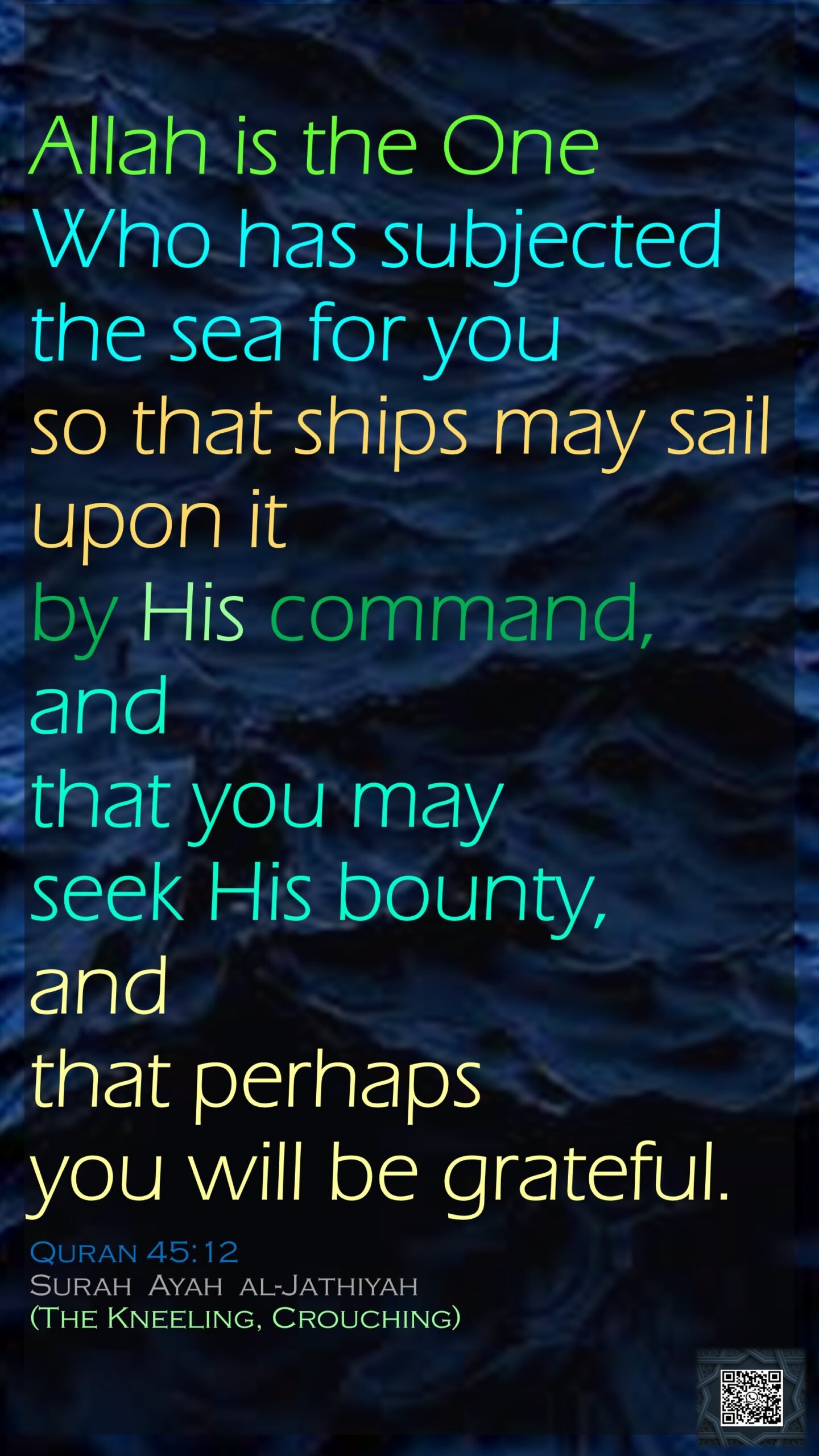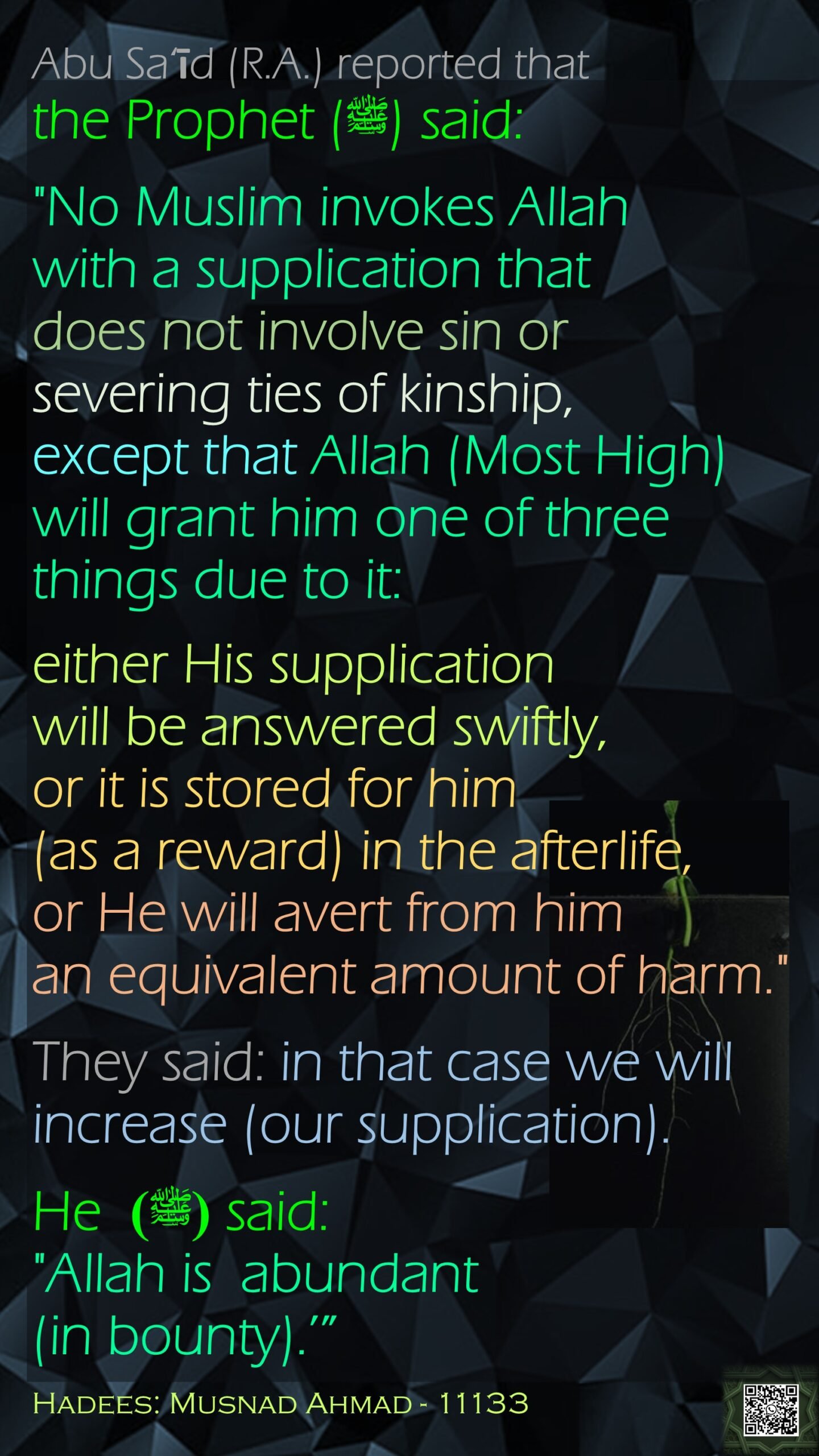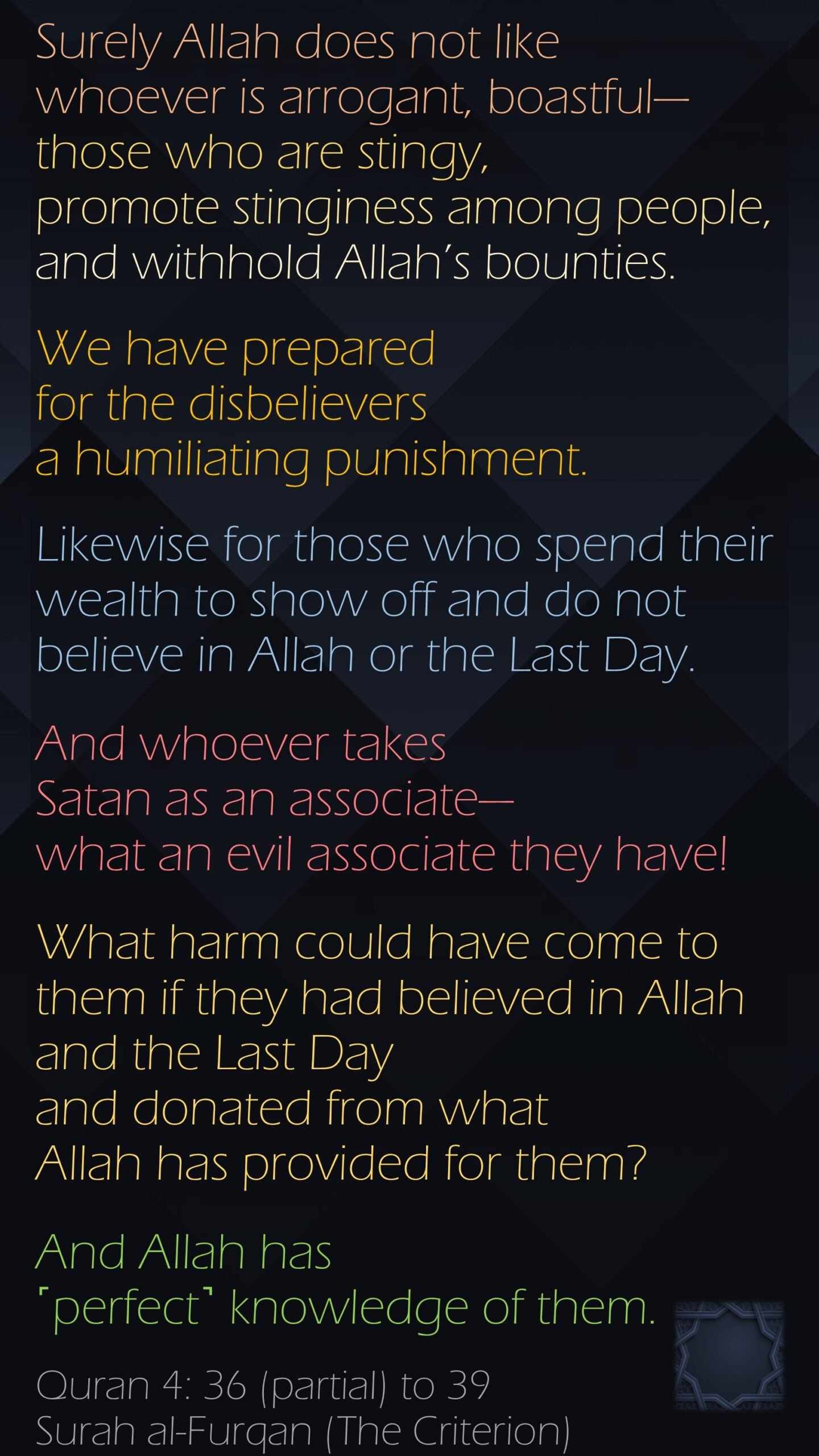24
Jun, 2025
Hadees: Musnad Ahmed 11133 (Fate of Supplications)
Hadees, Islam 11133, abundant, afterlife, ahmed, Allah, better, Bounty, daily, equivalent, grant, hadees, harm, increase, inspirations, islamic, kinship, Mercy, more, Muhammad, musnad, often, remove, reward, sin, store, supplicate, supplication, swift, three, ti
16
Mar, 2025
Quran 73:20
Islam, Quran 020, 073, Allah, alms-tax, ayat, believer, better, Bounty, cause, charitable, daily, difficult, ease, easy, endure, enshroud, Ever-Forgiving, EverMerciful, fight, forgive, forgivess, good, inspirations, islam, islamic, loan, magnificient, Mercy, Muhammad, Muzammil, night, prayer, precise measure, prividence, quran, recite, reward, rise, seek, send forward, sick, Surah, Tahajjud, travel, two third, Zakat
15
Aug, 2024
Quran 4 : 36(Partial) ~ 39
Islam, Quran 004, 36, 37, 39, Allah, An-Nisa, arrogant, associate, ayat, believe, boastful, Bounties, Bounty, daily, day, dislike, donate, evil, harm, humilate, inspirations, islam, islamic, Judgement Day, knowledge, last day, Muhammad, perfect, provision, punish, Punishment, quran, Satan, show off, spend, stingy, Surah, wealth, withhold, women
1
Aug, 2024
Quran 40:1~3
Islam, Quran 040, 1, 2, Accepter, All-Knowing, Almighty, alone, ayat, book, Bounty, daily, final, Forgiver, Ghafir, Ha-Mim, Infinite, inspirations, islam, islamic, Muhammad, no god except Allah, Punishment, quran, repentence, return, revelation, Severe, sin, Surah, worship
17
Jun, 2023









